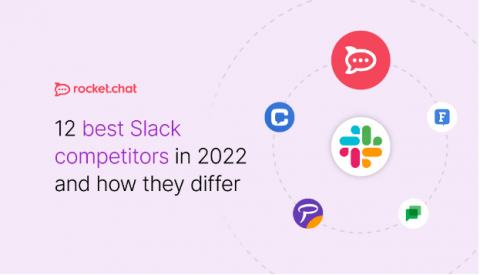Teams | Collaboration | Customer Service | Project Management
Rocket.Chat
5 ways to enable secure patient messaging
The healthcare sector is undergoing a significant digital transformation. Patients increasingly gravitate toward healthcare providers who provide digital capabilities such as self-scheduling, in-app reminders, and, most importantly, secure patient messaging. Furthermore, digital healthcare innovations allow for intense medical and non-medical staff collaboration within and across organizations.
How to enable secure collaboration and 9 tools to help you do it
Secure collaboration isn't just limited to board meetings at the workplace. Given the increase in remote work, there's been a boost in the number of tools that make online collaboration possible and productive - and effective collaboration sets successful teams apart from those that are not.
20 best collaboration platforms in 2022
Collaboration platforms make team collaboration easy for modern workplaces, remote and otherwise. As they say, two heads are better than one! Different collaboration tools are curated to make different tasks easier and increase productivity. In addition to helping teams achieve common goals, they also help to track changes and updates. This article gives you an overview of collaboration platforms in several categories.
12 best Slack competitors in 2022 and how they differ
Communication within the workplace isn't just board meetings anymore. It extends to conference calls, virtual meetings, and discussion threads. Teams today need the right platform for seamless business communication compared to slower alternatives such as email. Introduced in 2013, Slack provided a solution for workforces across the globe. It offered real-time communication, adding and editing files, and tagging co-workers in work threads and discussions.
The ultimate list of 15 best open-source software
This open-source software list is here to save your day! Since the open-source software trend is on a high, it seems like every proprietary software that you could think of has multiple open-source alternatives - and their quality gets more impressive over time. It's getting hard to choose the right open-source solution, right? Open-source software has been attributed with some important benefits for businesses, such as increased security and transparency.
Community Open Call August 2022 - Apps Engine, Demo.App, Chuck Norris App and more!
Open source collaboration software: benefits and 5 recommendations
In today’s hybrid work culture, teams need the support of a powerful collaboration tool to function efficiently. And though ample options are available in the market, open source collaboration software is gaining more popularity than ever. Why? This type of software promises better collaboration for security- and compliance-oriented teams.
Top 7 open source messaging platforms for secure communication
For remote teams, connectivity and productivity might be two faces of the same coin. Working from the office isn't a prerequisite anymore, as the global workforce has shifted to a remote workplace. Reliance on internal communication has increased more than ever, with a wide range of communication tools such as email, phone calls, and social networking used daily. Long email threads and social media chats are no longer appropriate for business teams.
The ultimate list of 18 most secure messaging apps
The most secure messaging apps are becoming a priority for more and more companies. They want to enable both best communication experience to their employees and ensure the highest level of security. Why? Because organizations know how beneficial team collaboration is. At the same time, they know that their reputation and business success depend on keeping their customers and internal data private.











